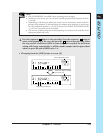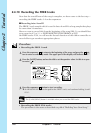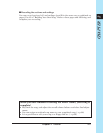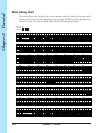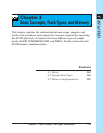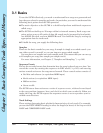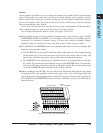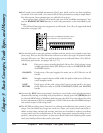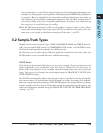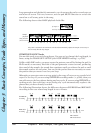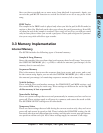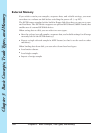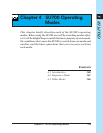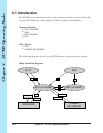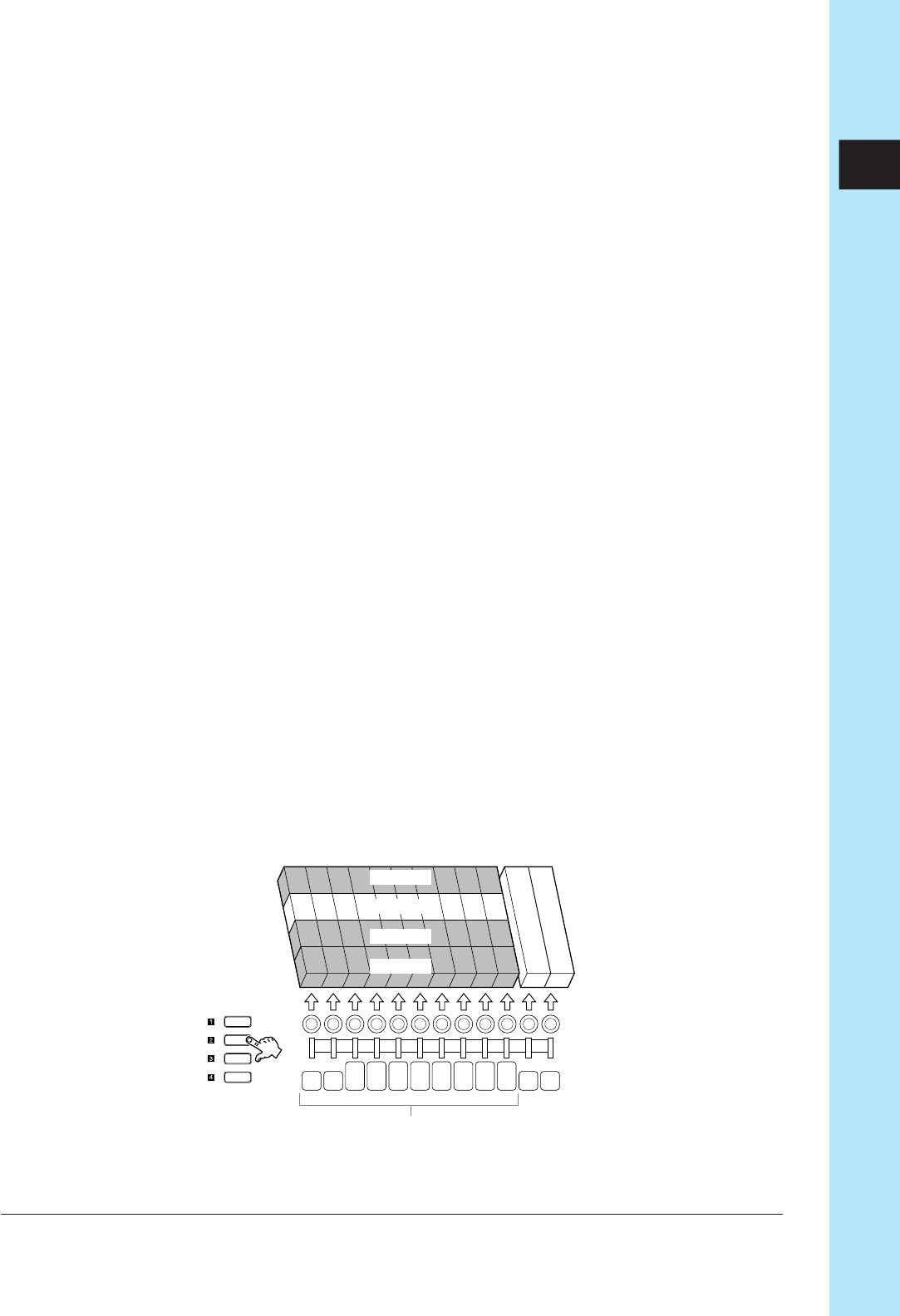
Chapter 3
Basic Concepts, Track Types, and Memory
133
CHAPTER 3
Scenes
Scenes make it possible for you to change the entire song sound with a single button
press. Each scene stores an entire environment: knob settings, mute settings, and the
effects setup. You create the scene by setting up an environment and then storing it
into scene memory. Once the scene is stored, you can recall it at any time by pressing
the corresponding scene button.
If you store an environment into the top scene, the environment will be automati-
cally recalled each time you return the song to its start position.
For detailed information about scenes, see pages 176 to 181.
◆ Only sample tracks can store samples. Sample tracks come in three types—LOOP,
COMPOSED LOOP, and FREE—as described in detail below. A sample track is
nonempty if it contains a sample; empty if it does not contain a sample. Empty
sample tracks are useless for your song, and cannot retain sequence data.
◆ The AUDIO IN and MASTER tracks are special tracks that never store samples, but
that can store sequence data.
●
The AUDIO IN track controls realtime audio input that you can supply during
performance. If you record sequence events onto this track, these events will
control the realtime input that you provide later during performance.
●
The MASTER track can be used to simultaneously control playback on all other
41 tracks. If you record a level-change event on the MASTER track, for example,
the event will cause the level to go up on all other tracks. If you switch the mute
on for the MASTER track, then all tracks will be muted.
◆ When working at the SU700, you can only access the knobs and pads for one bank
of sample tracks (ten sample tracks) at any given time. You can change the bank
selection by pressing the appropriate track-bank selector. Note that the controls for
the AUDIO IN and MASTER track are always available, and are not affected by
bank selection.
Sample Tracks
AUDIO
IN
MASTER
BANK 1
BANK 2
BANK 3
BANK 4
TRACK BANK
These knobs and pads work on selected bank only



